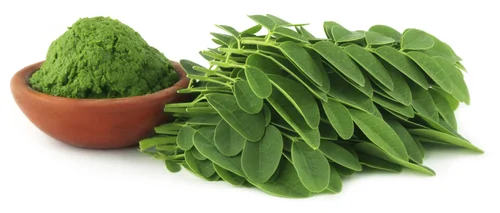The Miraculous Moringa: Unveiling Its Benefits, Usage, and Potential Side Effects
In the world of superfoods, Moringa has garnered significant attention for its remarkable health benefits. Often referred to as the “drumstick tree” or “horseradish tree,” Moringa oleifera is a plant native to parts of Africa and Asia. Its popularity has surged in recent years due to its rich nutritional profile and potential therapeutic properties. In this article, we will explore the various benefits of Moringa, how to incorporate it into your diet, and the possible side effects to be aware of.
The Nutritional Powerhouse
Moringa is celebrated for its impressive nutritional content. It is packed with essential vitamins, minerals, and antioxidants, making it a powerhouse of health benefits. Here are some of the key nutrients found :
- Vitamins : Moringa is an excellent source of vitamins, particularly vitamin A, vitamin C, and various B vitamins, including folate and riboflavin. Vitamin A is essential for maintaining healthy vision and skin, while vitamin C boosts the immune system and supports collagen production.
- Minerals : This superfood contains vital minerals like calcium, potassium, iron, and magnesium. Calcium is crucial for strong bones and teeth, while iron helps prevent anemia and fatigue.
- Protein : Moringa leaves are surprisingly rich in protein, making it a valuable addition to vegetarian and vegan diets. The protein contains all nine essential amino acids, making it a complete protein source.
- Antioxidants : Moringa is teeming with antioxidants, such as quercetin, chlorogenic acid, and beta-carotene. These compounds help protect cells from oxidative stress, reducing the risk of chronic diseases.
- Fiber : It is also a good source of dietary fiber, aiding in digestion and promoting a feeling of fullness, which can help with weight management.
The Health Benefits
- Nutrient-Rich Immune Support : The vitamins and minerals in Moringa bolster the immune system, helping the body fend off infections and illnesses.
- Anti-Inflammatory Properties : Moringa’s antioxidants and anti-inflammatory compounds may help reduce inflammation and related conditions like arthritis.
- Cholesterol Regulation: Some studies suggest that Moringa can lower bad LDL cholesterol levels, reducing the risk of heart disease.
- Blood Sugar Control : Research indicates that Moringa may help regulate blood sugar levels, making it potentially beneficial for individuals with diabetes.
- Aid in Digestion : The fiber content in Moringa supports healthy digestion and can alleviate digestive issues such as constipation.
- Improved Skin Health : The vitamin A in Moringa is essential for healthy skin, potentially reducing the signs of aging and promoting a radiant complexion.
- Enhanced Brain Function : contains compounds that may support cognitive function and protect the brain from neurodegenerative diseases.
Incorporating Moringa Into Your Diet
Now that we’ve explored the myriad of benefits, you might be wondering how to incorporate this superfood into your daily routine. can be consumed in various forms, including:
- Moringa Powder : This is perhaps the most versatile option. You can mix powder into smoothies, yogurt, or even sprinkle it over salads and cooked dishes.
- Moringa Tea : Steep leaves or tea bags in hot water for a soothing and nutritious tea.
- Moringa Capsules or Tablets : These are a convenient option if you’re looking for a more controlled and precise dosage.
- Fresh Moringa Leaves : If you have access to fresh leaves, they can be added to salads, soups, or stir-fried with other vegetables.
- Moringa Oil : This oil, derived from seeds, is used in cooking and skincare products. Remember that the flavor can be quite strong, so start with small amounts and gradually increase as your palate adjusts.
Potential Side Effects and Precautions
While Moringa offers a plethora of benefits, it’s essential to be aware of potential side effects and exercise caution:
- Digestive Upset : Some individuals may experience digestive discomfort, such as diarrhea or stomach cramps, when consuming large quantities . Start with small doses to assess your tolerance.
- Interactions with Medications : If you are taking medications regularly, consult with a healthcare professional before adding Moringa to your diet, as it may interact with certain drugs.
- Allergic Reactions : Though rare, some people may be allergic to Moringa. Watch for signs of allergy, such as itching, swelling, or difficulty breathing, and seek immediate medical attention if they occur.
- Pregnancy and Breastfeeding : Pregnant or breastfeeding women should use with caution, as its safety during these periods has not been extensively studied.
- Blood Pressure : Moringa’s potential blood pressure-lowering effects may be problematic for individuals with low blood pressure. Monitor your blood pressure if you choose to consume it regularly.
In conclusion, Moringa is undoubtedly a nutritional powerhouse with numerous health benefits. However, like any supplement or dietary addition, it’s essential to use it wisely and in moderation. Before making any significant changes to your diet or supplement regimen, it’s advisable to consult with a healthcare professional, especially if you have pre-existing medical conditions or are taking medications. When used thoughtfully, can be a valuable ally in your journey to better health and well-being.


Your article helped me a lot, is there any more related content? Thanks!